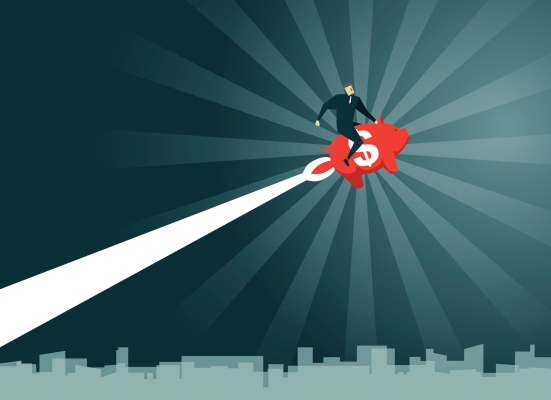Tyler Shultz blew the whistle on Theranos, leading to criminal fraud charges against the blood-testing startup’s founder Elizabeth Holmes. Now Shultz worries that a rush to produce more coronavirus tests and a vaccine could smooth the way for unscrupulous entrepreneurs.
“There were so many systems that had to fail to allow Theranos to happen,” Shultz, 29, said in a telephone interview. “But in this kind of post-Covid world, I do see a lot of opportunity for fraud. The science side is moving really, really fast. Corners are going to be cut. I’m very worried another Theranos will happen. The environment right now is conducive to fraud in the medical space.”
Shultz started working for the now-defunct Palo Alto company after meeting Holmes when he was 23, at the house of his grandfather George Shultz, a former U.S. Secretary of State and Theranos board member. Information that the younger Shultz gave to state regulators and a Wall Street Journal reporter formed the basis for an investigation that took down the company and got Holmes and the firm’s president, Sunny Balwani, charged with nearly a dozen felony fraud counts. The two are awaiting trial in U.S. District Court in San Jose, and have denied prosecutors’ allegations that they defrauded investors, patients and doctors by falsely claiming their machines could conduct a full range of medical tests using just a few drops of blood. Shultz is on government’s list of possible witnesses, but he said that although he’s heard from others that they’ve been subpoenaed to testify, he hasn’t been.
Amid the coronavirus pandemic, with the White House’s “Operation Warp Speed” aiming for a vaccine by January, the U.S. Food and Drug Administration is under pressure to speed development of tests and vaccines, and has streamlined processes, noted Shultz, who has a bachelor’s degree in science from Stanford University and is co-founder and CEO of medical-diagnostics-at-home startup Flux Biosciences in San Francisco. Flux is not working on coronavirus tests or a vaccine, Schultz said.
Worries about coronavirus-related fraud have gathered steam in recent days. “Scammers have capitalized on consumers’ fear and uncertainty at every turn, including by selling fraudulent treatments and cures, offering sham tests and vaccines, and posing as government officials to obtain money and personal information,” Democrats on the House Energy and Commerce Committee said in a letter last week to the Federal Trade Commission and the FDA. “There is now reportedly a significant demand for antibody tests among consumers who wish to return to their everyday activities against the advice of public health experts. It is no surprise that scammers are seeking to take advantage of this demand and are reportedly engaging in fraudulent antibody test scams.”
The four members of Congress made reference to an FBI alert late last month, warning that the drive to reopen the economy has put a premium on rapid development of antibody tests, and that fraudsters were marketing fake or unapproved tests “potentially providing false results.”
Earlier last month, Los Altos resident Mark Schena, 57, became the first American charged by the U.S. Department of Justice with securities fraud over pandemic-related activity, with federal authorities accusing the medical-technology CEO of seeking to trick investors by fraudulently promoting an unproven coronavirus test. The Justice Department drew a link to Theranos, noting in a press release that an affidavit from a government fraud examiner alleged that the Facebook page for Schena’s company, Arrayit, claimed it could run tests on blood samples “250,000 times smaller” than the few drops Theranos once touted.
“The allure of cheap reliable alternatives to today’s standard blood tests panels has captured the imagination of the health care industry, making such alternatives a prime subject for fraudsters,” U.S. Attorney David Anderson of the Northern District of California said. “The scheme described in the complaint, in which the defendant allegedly leveraged this allure by appending the fear of the Covid 19 pandemic, amounts to a cynical multi-million dollar hoax.”
The Securities and Exchange Commission had earlier charged Utah firm Applied Biosciences with fraud in connection with claims about its “finger-prick” coronavirus tests. The company did not respond to a request for comment. The SEC has also suspended trading of dozens of companies’ stocks over their touting of coronavirus-related products and services.
To Shultz, the prospect of a repeat of the Theranos saga — which prosecutors claim cost investors more than $700 million — threatens to further erode public trust in science.
“I hope the scientific community doesn’t mess it up with another Theranos,” said Shultz, whose four-hour podcast about Theranos, Thicker Than Water, is to be released by Audible in August. “I really hope this is an opportunity for science to gain the trust of the public.”
However, coronavirus testing or vaccine fraud at the scale alleged in the Theranos case is unlikely, said Kimberly MacPherson, a professor and executive director of health management at the UC Berkeley Haas School of Business. Companies developing coronavirus tests and vaccines fall under heavy regulatory scrutiny, MacPherson said.
Over-hyping of tests or vaccines whose efficacy won’t be immediately clear is a more likely problem, MacPherson believes. “We are moving at warp speed to create a solution and the level of promise of that solution is going to have to be tempered by what it’s going be able to do,” she said.










